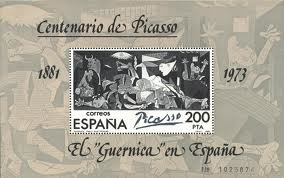It was really interesting to consider the weight behind the term “culture” as I went through the readings this week. I think today, when someone employs the term in casual conversation, listeners definitely relate it to, as Rivkin and Ryan explain, “art, literature and […] music” (1233). However, I agree that a more profound and accurate definition definitely does include language and the arts, but also “the regularities, procedures, and rituals of human life in communities” (1233). To think of culture in this way, especially as we employ the term in speech, is more than to invoke associations with art; it really includes a lot more about the ways in which our societies are organized and structured. I also think it is very relevant to our studies to continue to keep in mind what we read and discussed last week in regards to language; language inherently carries a culture with it.
The excerpt that I found myself reflecting the most on this week was Walter Benjamin’s “The Work of Art in the Age of Mechanical Reproduction”. I find this work very fascinating both because of how it jam-packs so many interesting concepts in a very succinct fashion, and also because of the historical context of this text is fascinating. I know that we are supposed to read text for text and not consider the historical context necessarily, but I think that in the case of Benjamin we simply cannot ignore what was happening in Europe at the time (of course, we should not let the historical context overshadow the text itself; I think it’s always just about maintaining a balance. Can we simply ignore the rise of fascism in Europe or the fact that Benjamin committed suicide in Portbou at the French-Spanish border, as he was being pursued by Nazi forces? I do think that we should take into account the context of the rise of fascism in Europe because there simply is no way that such an environment wouldn’t have an effect on society and on culture).
As I was reading the excerpt of Benjamin’s essay, I found myself thinking of different examples that I am familiar with and it really illuminated his arguments for me. For example, when he puts forth that “even the most perfect reproduction of a work of art is lacking in one element: its presence in time and space, its unique existence at the place where it happens to be. This unique existence of the work of art determined the history to which it was subject throughout the time of its existence. This includes the changes which it may suffered in physical condition over the years as well as the various changes in its ownerships” (1235), I couldn’t help but think of Picasso’s Guernica and its journey from Paris to New York (MoMA) to Spain (its now permanent home is in its purpose-built gallery at the Museo Reina Sofia (Queen Sofia Museum) in Madrid). I think it is worth it to follow Benjamin’s train of thought as expressed in the above quotation and try to apply it to this specific case. Any reproduction of the Guernica will lack this unique existence of its changes in locality. (I’d love to be able to put up a photographic reproduction that I took myself when I was in Madrid this past summer, but you are not allowed to take photos of the Guernica, so I hope that an image off the Internet and my photos outside of the museum will have to do).
This is especially important taking into account Picasso’s insistence that the paining was not to be delivered to Spain (he painted it in Paris) until liberty and democracy would be established in the country. Today at the Museo Reina Sofia, you can buy anything and everything with the image of the Guernica on it (see some examples in the images below) , though I imagine one of the most well-known reproductions is the replica that is at the UN headquarters in New York.
Created by Picasso after the indiscriminate bombing of the Basque village of Guernika in Spain by the German Luftwaffe, this painting depicts the horrors of that bombing. Today it is largely seen on a broader scale as a painting depicting the horrors of war in general, which is why it is significant that the image was covered when Colin Powell had to make his declaration of war…otherwise he’d have delivered a speech on war with the image of the Guernica in the background. All of these changes in physical location of the painting are crucial to what it has come to stand for, and only the original work itself carries this aura, as Benjamin would term it.
Another example that came to my mind as I was reading this part of Benjamin’s article is the recent discovery (announced on November 5th of this year!) in Munich of more than 1 400 pieces of art (including works by such artists as Otto Dix, Henri Matisse and Max Liebermann) that were confiscated by the Nazi for being “degenerate”. This history of disappearance for such a long time is now part of “the history to which [a work of art] was subject throughout the time of its existence”, as Benjamin explains it – and undoubtedly, the “various changes in its ownerships” is a story that is still unfolding as millions of claims are starting to pour in. As art professor Meike Hoffmann explained, this is an “emotional discovery” as many of the individuals who are putting forth claims are of an advanced age, some are very ill in their old age, and the German government is being criticized for not having revealed this discovery as soon as they made it last year – some of the rightful owners might have died in the time that the discovery was made public (and not by the government’s choice, but rather by being leaked in a German newspaper. When officials went to an art collector’s apartment to investigate some charges of tax fraud, they reportedly found the more than 1 400 pieces of art, and the German government now has to answer as to why it took them so long to make this discovery public so that the rightful possession process could have been started earlier. Please see this BBC article http://www.bbc.co.uk/news/world-europe-24818541 for more information).
I also think Benjamin’s concept of “situation of politics which Fascism is rendering aesthetic”, which he terms the “aestheticization of politics” is also very important. I think Benjamin was describing, at the time, what later historians’ studies have identified as one key ingredient of the Nazi regime in Germany – the way that art was employed in the mass rallies in order to create heightened frenzy; one of many examples would be the lighting techniques used at the rallies that really gave the impression of larger crowds than were actually in attendance. Similar in a way to Benjamin’s concept of the aura, I think that this is impossible to fully comprehend today, but I do think that Ottawa’s War Museum has the closet possible reproduction (in Benjamin’s terms) that I’ve come across in Canada. As Benjamin would highlight, this is impossible to reproduce in my blog post, but alas, I shall attempt it anyway. What the War Museum has is this one room that has nothing – and this is the important part – in it but a replica of one of Hitler’s cars of the era (Mercedes Benz limousine) in a solitary room; that is the only actual object in the room. What it does rather have on the walls is pictures of mass audiences at a Nazi rally and lights – the room is very dim and as you walk into the dark room and see the car, the manipulation of the lights really creates a feeling in the museum visitor of really being in the middle of a Nazi rally…really effectively demonstrating the way that, as Benjamin explains in his article, the regime aestheticized politics for their purposes.
Standing in that room creates one of the most eerie feelings that I’ve ever experienced in my life – my first instinct was to get out and do it right away, because I did not want to feel like an accomplice in that staged rally, as it can be conceptualized in one way – and I think that uncanny feeling is exactly what the exhibit wanted to create. It really powerfully demonstrates the aestheticization of politics that Benjamin talks about, and should you ever have a chance to visit the Museum of War in Ottawa, I definitely recommend it.

























